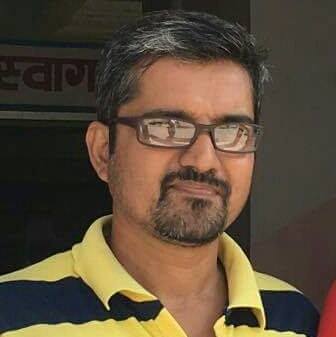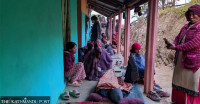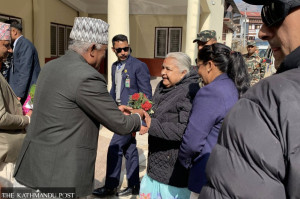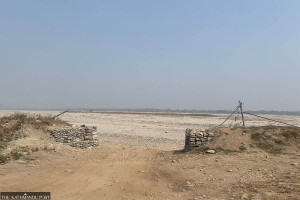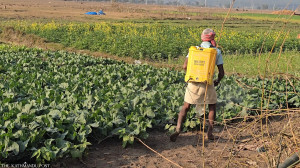Koshi Province
Poor border security arrangement fails to control cross-border movement in Morang
The entry of people through proxy border points still continues risking the spread of coronavirus.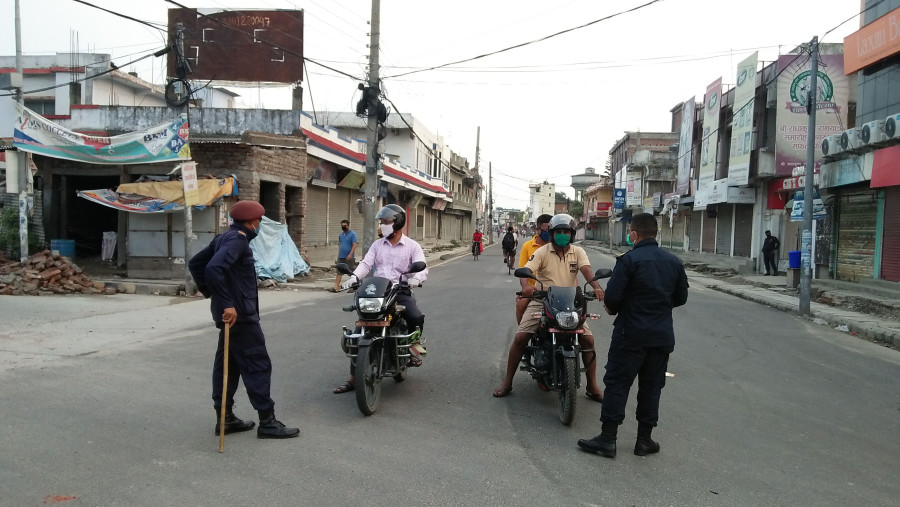
Madhav Ghimire
The Nepal-India border has been sealed for two months amid fear of Covid-19 spread. Major border points in Morang now wear a deserted look due to the border seal and the nationwide lockdown enforced in both the countries. However, the entry of people through proxy border points still continues, risking the spread of the virus.
“People are still entering Nepal almost every day from the bordering villages. Although there are security forces deployed at the border, the flow of people through proxy routes goes unchecked,” said Bimal Basnet, a resident of ward No. 12 of Biratnagar Metropolitan City. According to him, the risk of an outbreak of coronavirus is very high in the district, as such returnees do not approach authorities to reveal their travel plans or stay in quarantine facilities.
The locals in the bordering villages claim that a large number of people have entered Nepal despite the lockdown. But the authorities do not have any record of those returnees. The locals say that the efforts made by the authorities to keep a check on border movement have been ineffective so far.
According to the data available at the Province 1 Police Office in Biratnagar, 718 people from various districts of the province entered Nepal from several border points in the past week. They are currently kept in various quarantine facilities across the province. Earlier, 27 people had crossed the border on April 9 and 15 others on May 12 through the Jogbani border point of Morang. But the police do not have any records of those entering the country from various bordering villages through proxy routes.
Shriprasad Yadav of Ward No. 18 is worried about the possible outbreak of the coronavirus in his community. “The people who recently returned from India are walking freely around the settlement. They are neither kept in quarantine facilities nor have they undergone any tests,” said Yadav. “If even one of them is infected, s/he risks transmitting the virus to the entire local population.”
The health ministry on May 17 had confirmed three positive cases in Province 1, among them two were from Biratnagar. One of the infected persons is a sanitation worker. Another had just returned from her maternal home in India a few days ago. Morang has a total of six positive cases so far.
Superintendent of Police Bishwa Adhikari said that security personnel have been deployed every 500 metres along the Nepal-India border. He, however, admitted to security challenges in controlling cross border movement due to the open border between the two countries. The Nepal-India border is around 62 km long in Morang. There are lush cornfields in various places along the bordering area which has become an ideal border crossing for those entering the country at night.
Jiban Ghimire, Social Development Minister of Province 1, said that the government is preparing to manage the possible influx of returnees from India.
“We are preparing to set up quarantine facilities in many places and keep the returnees there,” he added.
Meanwhile, three local bodies that border with India—Rangeli, Sunbarshi and Ratuwamai municipalities—have decided to appoint temporary police to keep a check on border movement. The local units have recruited interested locals to join the temporary police force according to the constitutional provision.
“Cross border movement of people continues due to a shortage of security personnel. So we decided to appoint temporary police,” said Rabin Rai, mayor of Ratuwamai. Each local unit will appoint 23 temporary policemen for a period of three months.
According to Province 1 Police Office in Biratnagar, around 1,100 security personnel of the Nepal Police and 2,944 Armed Police Force personnel have been deployed along the border in the province. But a security source said the number is not enough to maintain security in the border in the present situation.
Binod Bhandari and Deonarayan Sah contributed reporting.




 18.12°C Kathmandu
18.12°C Kathmandu